During April 11-17, Prof. Zhang Haibing, Executive Director of the Institute for World Economy Studies led a group of SIIS to the United States. The delegation attended the T20 event on “China’s Presidency: Delivering on Growth and SDGs” co-hosted by SIIS, the Institute for World Economics and Politics of the Chinese Academy of Social Sciences (IWEP-CASS), the Chongyang Institute for Financial Studies of Renmin University (RDCY) and the Brookings among others, the 3rd round of “China-US Dialogue on Global Economic Order” co-sponsored by SIIS and the Center for Strategic and International Studies (CSIS) and the IDA Forum hosted by the World Bank. They also visited the Sustainable Development Solutions Network (SDSN), the United Nations Development Programme (UNDP), the International Development Association (IDA), the International Financial Corporation (IFC) and Center for Global Development (CGD) exchanging views on the Chinese Presidency of the G20 and the implementation of the 2030 Sustainable Development Agenda.
Address by Minister Li Kexin at the T20 Conference
2016.04.13
Brookings Institute, Washington D.C.
Mr. Chair,
Distinguished Guests,
Ladies and Gentlemen,
It’s a great honor to be invited to this special event. As one of the most important engagement groups of G20, T20 is such an effective platform for global think tank representatives to contribute their wisdom and thoughts, which always sets a sound foundation for the G20 Summit. It’s amazing for me to be back in G20 circle, since I had been closely working with G20 Summit for almost 5 years before I came to D.C..
Today I would like to share some ideas with all of you here.
First of all, the world economy is facing severe challenges and needs G20 to play a role.
2015 marked the lowest global growth since 2009. All major international economic organizations are downgrading the global growth expectation. The world economy is beset by a lack of momentum and demand. Divergent monetary policies of major economies, falling commodity prices, slower growth of emerging and developing economies are all negative factors. With economic factors intertwined with geopolitics, global economy may be trapped in a state of sluggish growth for a long time. The possibility of greater volatility in the international market or even another crisis cannot be completely ruled out.
All that reminds me of the inaugural G20 Summit proposed and convened by the U.S. when the international financial crisis was at its worst. The G20 leaders agreed to work together to tackle the crisis and promote growth. That agreement greatly boosted the confidence of the international community. President Obama attended the second G20 Summit in London, where G20 leaders decided to launch huge stimulus packages together and to start the governance reform of international institutions. Those proposals and actions helped to steer the world economy towards stability and recovery. That’s why the G20 has become a premier forum for international economic cooperation.
At the critical juncture of present world economy, the G20 has the responsibility to come forward and chart the course, in a way to ensure steady growth for the short term and create new impetus for the long run. Although G20 members began to find it more and more difficult to reach policy consensus and to take joint actions, I believe it is still the most effective and representative mechanism to tackle the challenges vis-a-vis other mechanisms,including G7.
So we expect G20 to play its role, and extend deliverables. This brings to the second point I want to make: As the host of the Summit, does China have a plan?
The answer is yes.
The Hangzhou Summit, whose theme is "towards an innovative, invigorated, interconnected and inclusive world economy", will focus on tackling the greater and most outstanding challenges of the world economy in a bid to add new and fundamental drivers to strong, sustainable and balanced global growth.
Specifically, there are four priorities for the Hangzhou Summit:
First, to innovate growth models mainly through reform and innovation in order to create and seize new opportunities and foster medium-to-long term growth potential in the world economy.
Second, to improve global economic and financial governance so as to increase the representation and voice of emerging markets and developing countries and make the world economy more risk-resilient.
Third, to promote international trade and investment for building an open world economy and reinvigorate global growth.
And fourth, to enhance inclusive and interconnected development, with efforts being made to implement the 2030 Agenda for Sustainable Development and strengthen the momentum of world economic growth.
Actually, the recent Sherpa Meeting in Guangzhou issued a Presidency Statement on Climate Change on how G20 can take the lead in promoting the implementation of the Paris Agreement, by signing the Agreement on 22 April 2016 when the Agreement will be opened for signature. That can be regarded as an early harvest in the China Year of G20.
I believe the plan and priorities will come true as they have garnered the most common aspiration of all G20 members. Furthermore, it is consistent with China’s economic strategy.
As the world economy is at a crucial stage of a shift in the driving force of the growth, Chinese economy has entered a new normal which will grow more steadily and sustainable. It’s an imperative mission to carry out structural reform through out the world and China is taking the leading role among that historic process. As we all know, China has declared its 13th Five-Year-Plan to pursue innovative, coordinated, green, open and shared development, drive the economy through reform and innovation, press ahead with structural reform, implement the innovation-driven strategy and pay more attention to the quality and efficiency of development. This new orientation is exactly in line with the G20 process. So this is a win-win effort. If G20 succeeds, China will succeed.
The third point I want to make is how US and China work closely in G20.
In G20 circle, I did have very good personal experience with American colleagues, such as Mike Froman, David Lipton, Carolyn Atkinson and others.
As the biggest developed country and the biggest developing country respectively, the United States and China are players of special importance among G20 members. The United States is the only country who has held G20 Summit twice. During the Summit in Pittsburgh, we agreed to establish a Framework for Strong, Sustainable and Balanced Growth. Without the U.S., we can never realize the reform of international financial institutions. Though it was a little bit late, the US Congressional approval of the 2010 Quota and Governance Reforms of IMF early this year received broad welcome from the international community. China kept the strongest economic growth during the financial crisis, which helped to prevent the world economy from free falling. Over 50% of the global growth came from China for many years. Despite slowing down of its economy, China still made significant contribution to the growth of world economy, as high as 25% in 2015.
Our two countries have enjoyed good cooperation in the past years, especially in the field of macro-economic policy coordination, energy efficiency, fossil fuels subsidy, countering infectious disease of Ebola in Africa. Our two presidents met twice in the last six months and they reached consensus on wide range of issues. This has laid a solid foundation to further our cooperation in G20.
However, I do have some worries about U.S.’s commitment on G20. The G20 Summit came to life when crisis broke out, and it is our hope to turn G20 from a mechanism of crisis response into one of long-term governance. But I see a lacking interest in G20 by U.S. in recent years. More efforts have been put in “new babies”, like TPP. Even individuals as Mike Froman made the shift. I would appeal U.S. to take G20 as a heavy-duty vehicle that can play a crucial role when there’s something big to carry, but needs good care and maintenance, rather as a band-aid mechanism.
With that understanding, when China and the US stand side by side, we can make great progress and breakthroughs.
As an ancient Chinese saying goes, “The fire burns high when everybody adds wood to it.” The T20 Conference marks an important progress of the preparations for the Hangzhou Summit. It is also an occasion for us to have in-depth discussion and contribute ideas and wisdom to the upcoming Summit. I hope all the scholars and experts present here will share your insights with each other and enable the G20 to make greater contribution to boost world economy and benefit the people of all countries.
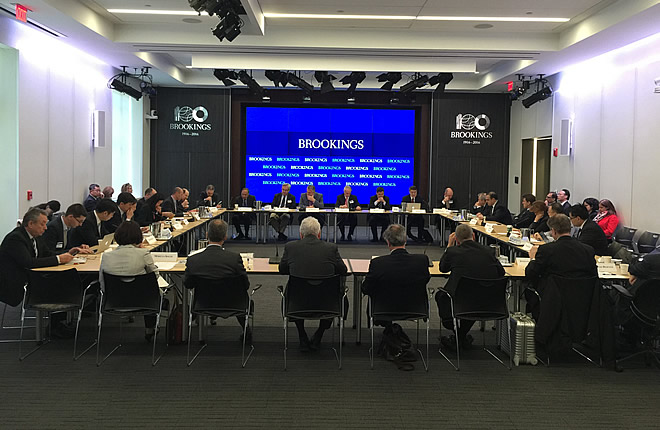
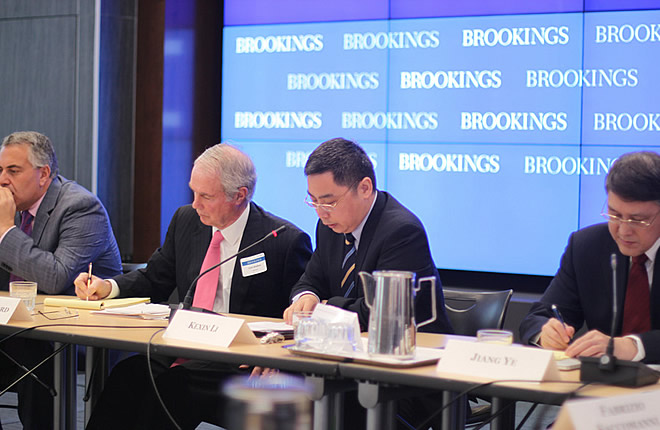 Minister Li Kexin delivering keynote speech at T20 event
Minister Li Kexin delivering keynote speech at T20 event Group photo with Minister Li Kexin
Group photo with Minister Li Kexin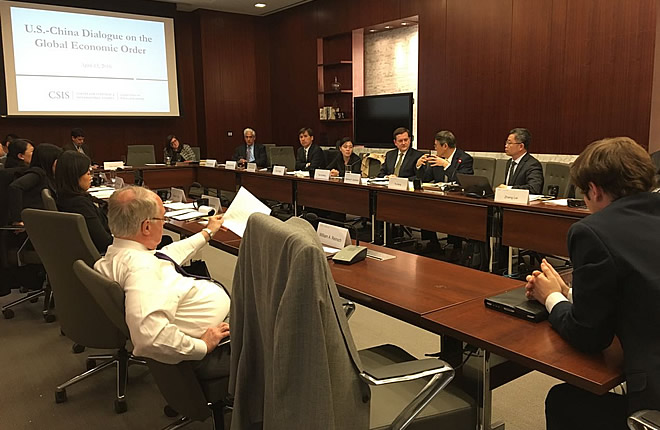 co-sponsoring the 3rd round of “China-US Dialogue on Global Economic Order”with CSIS
co-sponsoring the 3rd round of “China-US Dialogue on Global Economic Order”with CSIS 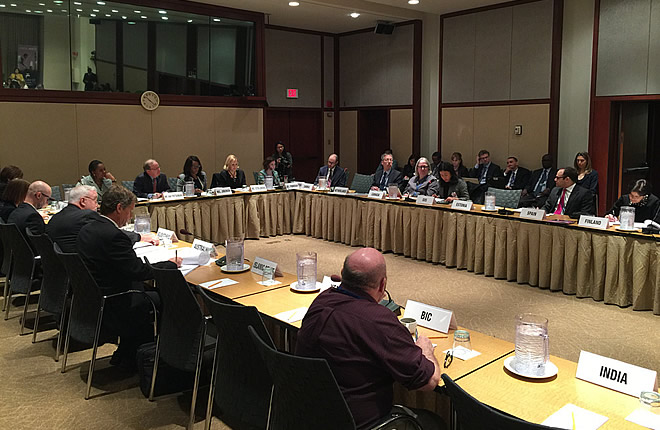 Attending the IDA Forum
Attending the IDA Forum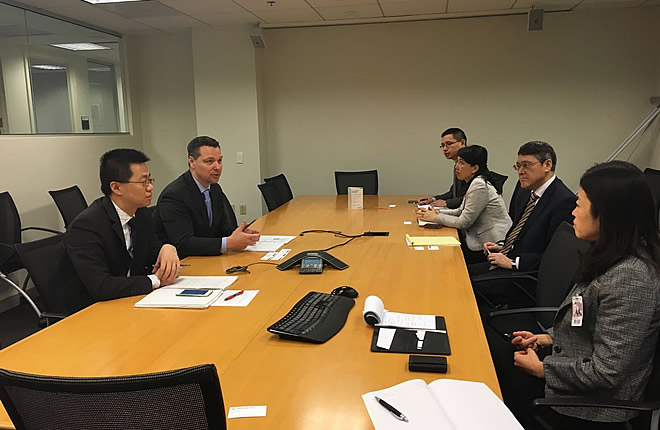 Visiting IDA
Visiting IDA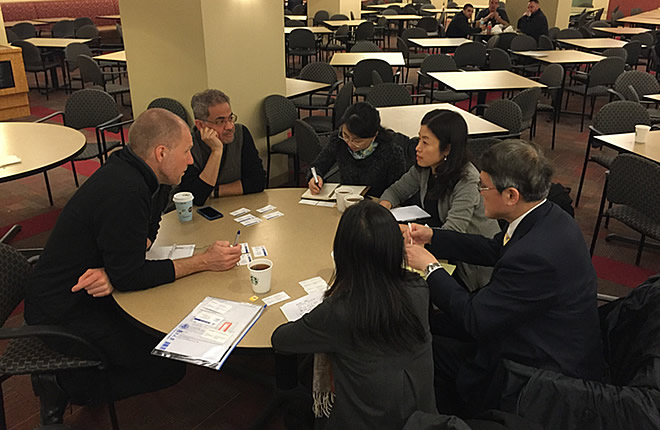 Visiting SDSN
Visiting SDSN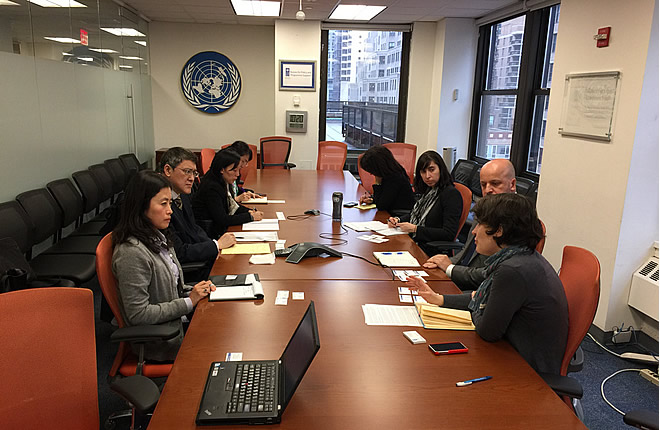 Visiting UNDP
Visiting UNDP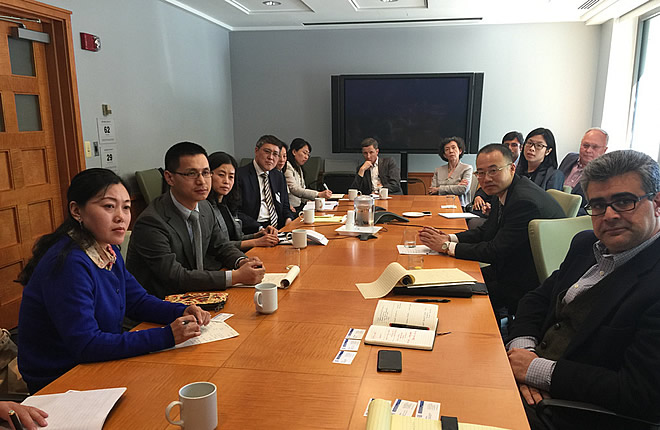 Visiting IFC
Visiting IFC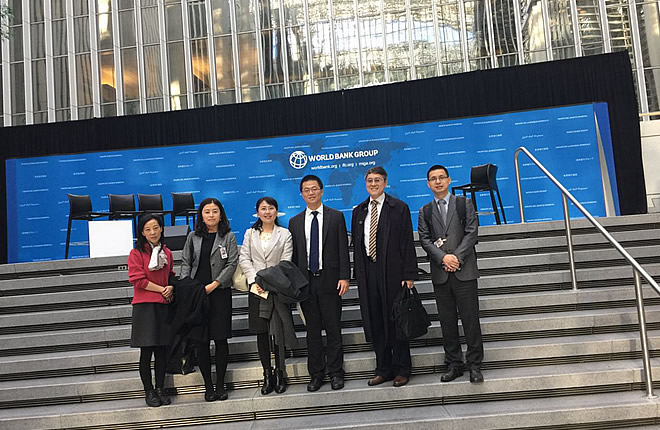 Visiting the World Bank
Visiting the World Bank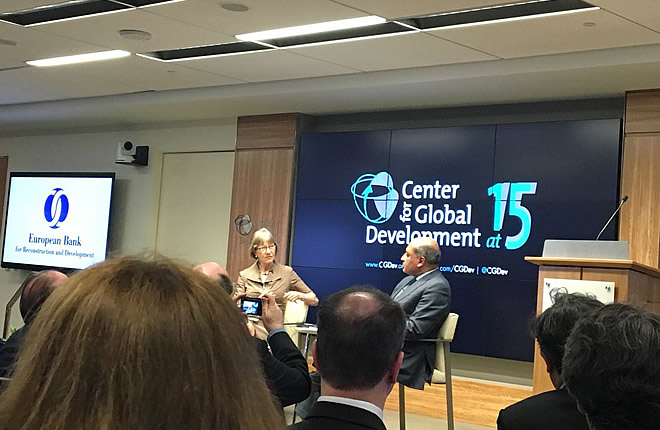 Visiting Center for Global Development
Visiting Center for Global Development